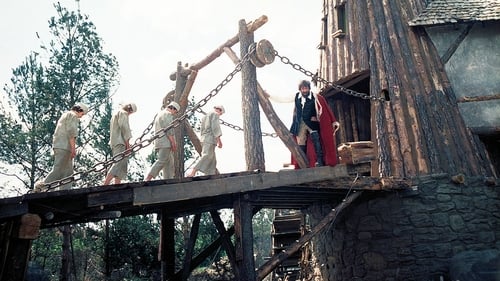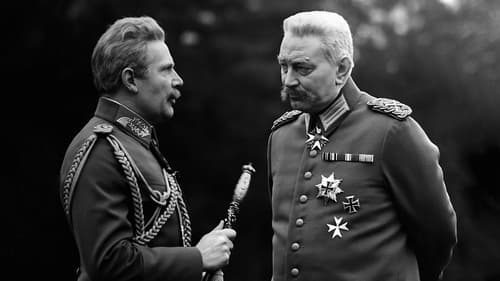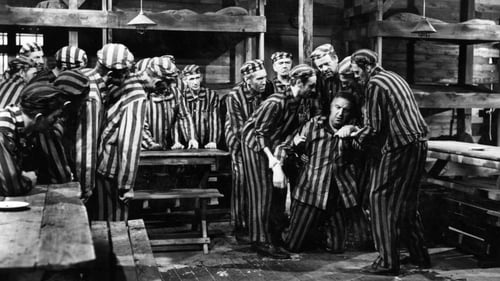Irma Münch
Nascimento : 1930-05-15, Sonneberg, Germany

Frau Von Haas
Based on a semi-autobiographical story by Ogai Mori, about a Japanese medical student who goes to Berlin to study in the 1880s and falls in love with a German ballet dancer.

The wrenching story of a woman sentenced in 1934 to ten years in prison for antifascist activities. The love between her and her fiancée enables her to survive the tribulations of her time in prison, where she is one of few political prisoners.

Madame de Staël

Aline

Gunvor

Dr. Käte Zacharias

Margit Köhler

Gräfin
The five-part feature, based on the novel by Helmut Sakowski, focuses on the friendly but also rival relationship between Druskat and the self-righteous Max Stephan, an old pal with different attitudes towards life and socialism . Druskat came to Mecklenburg as a refugee after World War II, became an integral part of the community, but also repeatedly caused a stir. Since the death of his wife he lives only with his daughter Anja, although there were enough women who wanted to be with him. Now he´s chairman of the LPG, the "volutary" federation for agriculture and animal husbandry. One evening, two men from the public prosecutor's office come to pick him up. He seems prepared, but Anja doesn't know why. Her first way leads her to Max Stephan, LPG chairman in the neighboring village. She happened to be there during the last argument between them, Max threatened to literally destroy Daniel. Did he carry out this threat? In conversations with the villagers, she gradually learns the truth.

Mutter

seine Frau Monika

Following a training course, the 28-year-old Helga Baumann, a single mother of two children, meets up with her husband Fred again. They had separated a while ago because their ideas of marriage were completely disparate: The conservative Fred advocated the woman′s role of wife and mother, while Helga dreamt about an emancipated partnership between two employed persons. Now, her sister has brought them back together. At first sight, Fred seems to have changed and, once again, Helga cannot resist his advances. But when she meets with difficulties during a fair in Tashkent, Fred yet again proves to be a petty bourgeois by assuring her that they would get along perfectly without her working.


October 1918: Karl Liebknecht is released from prison and Berlin workers celebrate his release. Although WWI is almost over, the German Kaiserreich in vain sends its last reserves to the slaughter. The working class is in a rebellious mood; the uprising of Kiel’s sailors against war and militarism sets off a call for revolution led by Liebknecht. On November 9, Liebknecht declares the Free Socialist Republic of Germany. But pro-Kaiser military and right wing Social Democrats oppose him.

Mrs. Paine

Mildred Harnack
East German film about the history of Red Orchestra, a real life German pro-Soviet spy ring created after the rise of Hitler that turned into a resistance movement led by a leftist Nazi officer, Harro Schulze-Boysen, and Arvid Harnack.

Narrator
The film outlines the life of this revolutionary leader of the German and international working-class movement.

Frau Hoffmann
Hoffi is starting fresh after his release from prison. He travels with his brother to different construction sites in search of Urban, an acquaintance and role model he met during a brief hospital stay. Along the way, Hoffi meets Gila, who sees beyond his past in prison. Despite disapproval from her family, Gila decides to build a relationship and future with Hoffi, but Hoffi initially hesitates at this responsibility. It takes the encouragement of his workers’ brigade for Hoffi to realize his mistake and give his relationship with Gila a chance.

The 18-year-old Katharina Jens is a high diving champion and succeeds in everything she does. When she enters an international contest in place of her team colleague Claudia, expectations are accordingly high. However, when she misses the one-and-a-half somersault with a double twist her team fails to gain victory. Suddenly, the question arises if she is in fact good enough.

Inge Fohrmann

Gabriele Deister
The Rabbit Is Me was made in 1965 to encourage discussion of the democratization of East German society. In it, a young student has an affair with a judge who once sentenced her brother for political reasons; she eventually confronts him with his opportunism and hypocrisy. It is a sardonic portrayal of the German Democratic Republic's judicial system and its social implications. The film was banned by officials as an anti-socialist, pessimistic and revisionist attack on the state. It henceforth lent its name to all the banned films of 1965, which became known as the "Rabbit Films." After its release in 1990, The Rabbit Is Me earned critical praise as one of the most important and courageous works ever made in East Germany. It was screened at The Museum of Modern Art in 2005 as part of the film series Rebels with a Cause: The Cinema of East Germany.

Donna Loyd

Hanna Melvien
Former East German engineer Erich Becker had been lured to West Germany by promises of a high reward. Now residing in Stockholm, he is recalled to serve as a spy in the East. He is to convince Dr. Jadenburg to flee from the GDR with the help of his daughter Hanna, who works for the West. While travelling on the train with Hanna, he is told that he is also to murder another agent who betrayed and now works for the Stasi. The traitor is revealed to be a former friend of Becker, Harry Korb.

Reporters tell lies about East Germany.

Prinzessin Surabaja

It is the 65th birthday of Wilhelm Lehmann, foreman of a chemical company. All members of the large family are expected. Preparations are also being made in the company: Wilhelm is to be awarded the »Labor banner« and, as every year, the sons are responsible for the may bowl. But instead of family members, telegrams with rejections flutter into the house.

Sekretärin von Mehlin
The authorities expect the case of Friedel Walter, alias "Dr. Mueller," to be a straightforward one: he was working as a doctor without proper credentials under a false name. But Mehlin, the man in charge of his case, knows that there is more to the story. When he was injured fleeing from a concentration camp, resistance worker Irene asked her medical student boyfriend Walter to give him medical care.

Herta Ring, Journalistin
Shortly after the seizure of power by Adolf Hitler at the beginning of 1933, preparations were underway to silence the members of the socialist and communist parties.












